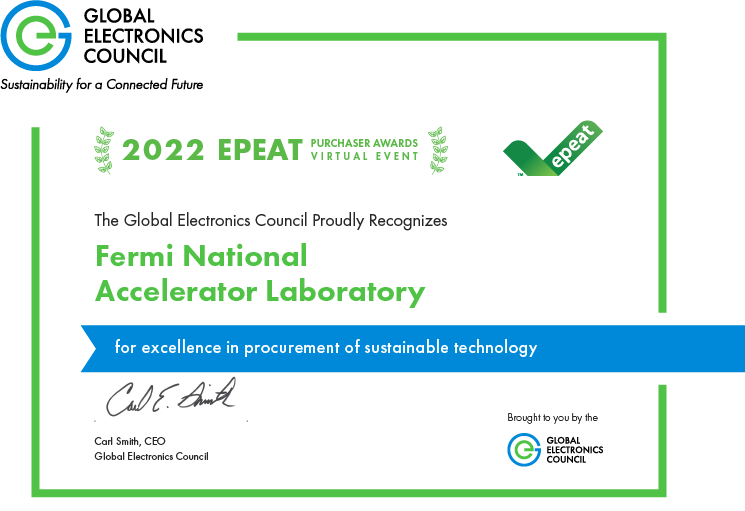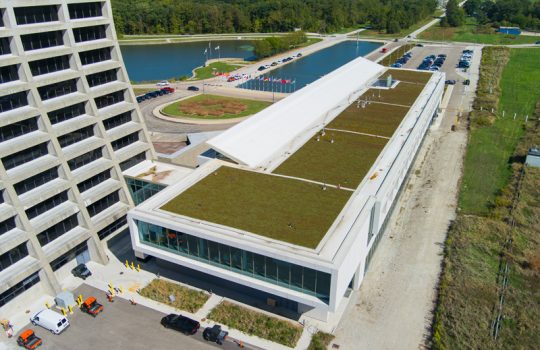The U.S. Department of Energy’s Fermi National Accelerator Laboratory is the proud recipient of a 2022 EPEAT Purchaser Award. Bestowed by the Global Electronics Council, the EPEAT Purchaser Awards recognize excellence in the sustainable procurement of IT products. This year, Fermilab has received the award for five product categories.

Fermilab received the EPEAT Purchaser Award for five categories: Computers and Displays, Imaging Equipment, Mobile Phones, Televisions and Servers. Image: Global Electronics Council
The GEC announced the 2022 EPEAT Purchaser Award winners at a virtual ceremony on Thursday, July 28, 2022. The awards acknowledge leaders in sustainable electronics procurement. EPEAT purchasers are recognized for each product category in which they procure EPEAT-registered IT products and have met all the eligibility requirements. Fermilab received the EPEAT Purchaser Award for five categories: Computers and Displays, Imaging Equipment, Mobile Phones, Televisions and Servers. This achievement demonstrates Fermilab’s computing and procurement teams’ cooperation and diligence to ensure that the electronics products Fermilab buys meet strict sustainability standards.
This achievement demonstrates Fermilab’s computing and procurement teams’ cooperation and diligence to ensure that the electronics products Fermilab buys meet strict sustainability standards.
The Global Electronics Council is a nonprofit organization that strives to create a world where only sustainable technology is bought and sold. GEC manages the EPEAT ecolabel, which is a free resource for procurement professionals to help them identify and select more sustainable products. It’s also intended to be a resource for manufacturers to demonstrate that their products conform to the highest sustainability standards. Since the launch of the ecolabel in 2006, procurement professionals have reported purchases of 1.5 billion EPEAT products.
Fermi National Accelerator Laboratory is supported by the Office of Science of the U.S. Department of Energy. The Office of Science is the single largest supporter of basic research in the physical sciences in the United States and is working to address some of the most pressing challenges of our time. For more information, please visit science.energy.gov.



